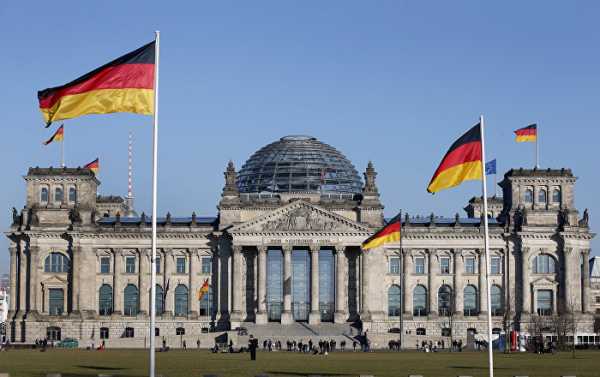
The German economy is in for a mild slowdown stemming from an expected drop in exports, officials in Berlin say, but some economists point to a likely rebound staring as soon as next year – once Brexit-related tensions subside, and new US trade policies towards Europe become clearer.
Kristian Rouz — The German government has recently downgraded its economic growth outlook for this year and next, citing concerns regarding possible disruptions in the international exchange in goods, services, and capital.
Officials in Berlin cited Brexit-related uncertainty, as well as the ongoing realignment in US foreign trade — which could limit German exports outside of the EU single market.
According to Germany’s Federal Ministry for Economic Affairs, the nation’s GDP growth is set to moderate at 1.8 percent this year, compared to the 2.3-percent expansion forecast previously. In 2019, economic expansion is projected at 1.8 percent as well, a downgrade from the previously expected 2.1 percent.
“The domestic economy will continue to remain an import pillar of economic performance. Uncertainties regarding its future performance are caused by increasing protectionist tendencies and international trade conflicts. They harm all parties involved,” Economy Minister Peter Altmaier said.
The German economy, currently the main driver of GDP growth in the Eurozone, grew 2.2 percent last year, but officials say a likely decline in exports could take a toll on the single currency bloc’s economic prospects as well.
“Blame trade, oil prices, Italy, Brexit, emerging market crisis, you name it,” Florian Hense of Berenberg Bank said. “This cocktail of risks has weighed on the German economy so far this year, and will continue to do so.”
However, European officials have disagreed with this assessment, suggesting possible disruptions in global trade could bolster the inter-European exchange of goods and services. European Central Bank (ECB) President Mario Draghi said the Eurozone is poised for a ‘broad-based expansion’ in the foreseeable future — while acknowledging the risks.
“The euro area economy continues to expand in a broad-based manner, across countries and sectors, despite some moderation following its strong growth in 2017,” Draghi said in a statement. “The economy grew by 2.1% year-on-year in the second quarter of this year.”
Draghi cited the improvements in the Eurozone inflation outlook — inching closer to the 2-percent target — while macro fundamentals have suggested there is no reason to expect a slowdown in the ongoing expansion cycle.
However, Draghi said, unconventional ECB monetary stimulus is still necessary, albeit at a possibly lower scale. Draghi also said Brexit poses a bigger challenge to economic growth in Europe, rather than concerns over international trade.
However, German officials are less optimistic, saying the country’s primary driver of growth is the export of high-tech products, machinery, and other manufactured goods.
However, even under the most pessimistic scenario, German officials said, the country would remain on course to maintain growth without sliding into a recession.
“The German economy is still in an upswing and will continue this upswing for the tenth consecutive year next year–the longest upswing period since 1966,” Altmaier stressed.
According to the German government’s figures, the growth in German exports is poised to moderate at 2.8 percent in 2018 compared to a robust 4.6 percent last year. Global demand for German goods is, however, expected to rebound in 2019, driving an expansion in German exports to 3.7 percent.
“The slowdown in German industry continues,” Carsten Brzeski of the Dutch bank ING said.
For their part, experts at the International Monetary Fund (IMF) also said Germany’s GDP growth would slow down to 1.9 percent for 2018 and 2019. Analysts said international headwinds would slash percentage points off the otherwise robust expansion.
Some economists say all these developments are quite likely unless Germany redirects some of its exports to either other EU members states or new markets in the developing world — where it could, however, face tougher competition from the US.
Sourse: sputniknews.com






